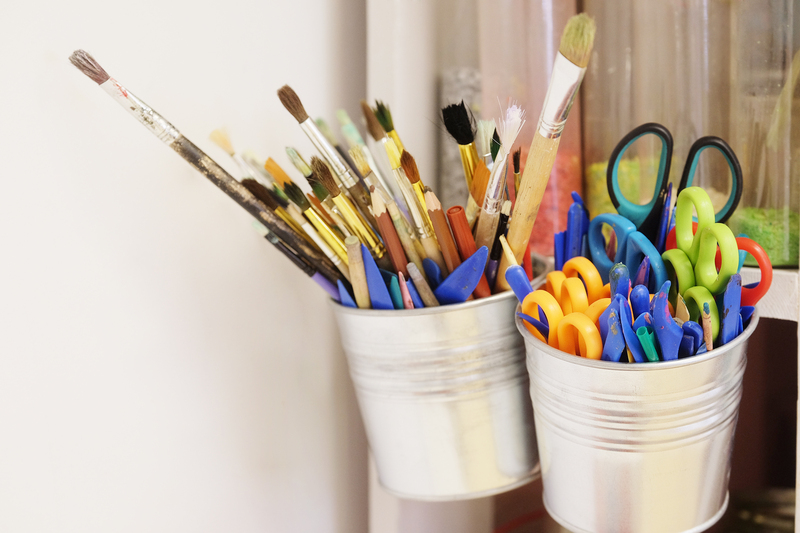Making Recycling Fun and Educational for Kids
Recycling is more than just a household chore; it's an invaluable lesson in environmental responsibility for the next generation. But how can parents, teachers, and community leaders turn recycling into an exciting and enlightening experience for children? This in-depth guide covers innovative ways to make recycling fun and educational for kids, providing actionable tips, creative activities, and helpful resources to foster a lifelong love for caring for the Earth!
Why Is Teaching Recycling to Kids Important?
Recycling is a vital step towards preserving our environment; educating children early promotes sustainable habits that last a lifetime. Kids who understand the importance of recycling are more likely to embrace eco-friendly behaviors as they grow older, making a direct impact on their families and communities. Plus, learning sustainable practices can boost critical thinking, creativity, and responsibility.
- Builds environmental awareness from a young age
- Develops problem-solving skills by tackling real-world challenges
- Encourages responsibility and teamwork at home or at school
- Prepares kids to become informed, eco-conscious citizens

How to Make Recycling Fun for Kids
Transforming recycling from a routine task into a fun-filled learning adventure is all about engagement and creativity. Here's how you can make recycling more entertaining and interactive for children:
1. Turn Recycling Into a Game
Games are a fantastic way to capture children's attention. Try these ideas to create a playful atmosphere:
- Sorting Races: Set up bins for paper, plastic, and glass. Challenge your child to sort mixed recyclables into the correct containers as quickly as possible.
- Recycling Bingo: Create bingo cards with different recyclable materials or items found around your house. Mark off squares as you recycle those items.
- Trash Toss: Use a safe tossing game (like bean bags or soft balls) to "throw" recyclables into the right bins. Give points for accuracy!
2. Get Crafty With Upcycled Art Projects
Encourage creativity and teach children the value of repurposing by leading upcycling art projects. Not only do these activities support cognitive development, but they also give a new life to items that would otherwise be discarded.
- Milk Carton Bird Feeders: Decorate empty milk cartons and turn them into colorful bird feeders for your garden.
- Plastic Bottle Planters: Cut and paint old bottles to create unique planters for herbs, flowers, or succulents.
- Magazine Collages: Use old magazines to craft vibrant collages, greeting cards, or bookmarks.
Tip: Always supervise children with scissors, glue, or paint, and encourage them to think about new ways to reuse materials!
3. Organize Educational Trips and Recycling Facility Tours
Take recycling lessons beyond the classroom or home environment by organizing a family visit or school field trip to a local recycling center. Witnessing the recycling process firsthand is a powerful motivator and gives kids a deeper understanding of their actions' impact.
- Meet real-world recyclers: Let children interact with workers and learn about recycling machinery.
- See sorting in action: Show how materials are separated, cleaned, and prepared for reuse.
- Understand the journey: Explain where items go after they leave the recycling bin.
4. Incorporate Storytelling and Educational Media
Storytime is an ideal opportunity to introduce environmental themes. Read books, play videos, or listen to songs about recycling to spark curiosity and facilitate open discussions.
- Recommended books: The Adventures of a Plastic Bottle, Michael Recycle, or Why Should I Recycle?.
- Watch kid-friendly documentaries or cartoons focused on recycling and sustainability.
- Use music and catchy jingles to help children remember recycling rules and facts.
Making Recycling Educational for Kids
To genuinely empower kids, it's essential to balance fun with meaningful education. Here are strategies to make recycling educational as well as enjoyable:
Teach the Science Behind Recycling
Help children understand how recycling works on a scientific level--why certain materials can be recycled, and the role of energy and resources in the process. Age-appropriate lessons might include:
- What happens to a plastic bottle after it's recycled?
- How do recycling centers separate glass from paper?
- The energy savings from recycling aluminum cans
- The environmental impact of waste in landfills
Using simple experiments or illustrated diagrams can help make complex concepts more accessible.
Link Recycling to Real-World Impact
Connect daily recycling habits to tangible positive outcomes. Share stories of real-world change -- for example, how recycling a certain number of cans can save enough energy to power a computer, or how picking up litter keeps local parks clean for wildlife.
- Track your family or classroom recycling efforts over time--graph pounds of paper, cans, or plastic saved each month.
- Set up a "Green Jar" challenge: Add marbles or tokens for every recycled item, and reward collective efforts with a fun eco-reward, like a tree-planting day.
Encourage Critical Thinking and Problem Solving
Ask kids to brainstorm creative solutions to recycling challenges. Sample questions could be:
- How can we reduce the amount of trash in our lunchboxes?
- What new inventions could help people recycle more materials?
- How might we convince more friends to recycle?
Empowering kids with the ability to think critically about sustainability fosters a sense of ownership and pride in their eco-actions.
Engaging the Whole Family in Recycling Habits
Making recycling enjoyable and educational for kids can be even more effective when the entire household is involved.
Create a Family Recycling Station
Designate a colorful recycling center at home. Let your children decorate bins with signs, drawings, or stickers for paper, plastics, cans, and compost. Visually appealing stations help children remember what goes where--and taking responsibility for "recycling patrol" can become a daily routine!
- Use labels and visuals for younger children who aren't reading yet
- Have a weekly family recycling sort together
- Track your recycling progress and celebrate milestones
Reward Positive Habits
Positive reinforcement motivates children. Set up a simple reward system to encourage good recycling habits--stickers, extra story time, or a family outing can be wonderful incentives.
Lead by Example
Children mimic adult behavior. Model responsible recycling and talk openly about your own eco-friendly choices to inspire your kids to follow suit.
Top Activities to Make Recycling Fun and Educational
Here's a list of hands-on recycling projects and activities designed to entertain and educate kids of all ages:
- Recycling Scavenger Hunt: Hide items around the house or yard and let kids find and sort them into the right bins.
- Trash to Treasure Contest: Challenge each child to create something new out of materials from the recycling bin--award prizes for creativity and usefulness.
- Composting Crew: Teach children about composting food scraps and use the compost in a family garden project.
- Recycling Relay Race: Organize a team race where each member sorts a pile of recycling as quickly and accurately as possible.
- DIY Paper Making: Let kids turn old newspaper into homemade sheets of paper, teaching them about material cycles.
Incorporating Recycling into School and Community Programs
Schools and community groups are in a unique position to reinforce recycling lessons. Here's how to integrate recycling into group activities:
Start a School Recycling Club
Encourage students to form a recycling club, organizing school-wide recycling drives, upcycling competitions, or awareness campaigns.
Classroom Recycling Projects
- Create educational displays (posters, bulletin boards) explaining how and why to recycle
- Run a "zero waste lunch" challenge for a week
- Partner with local recyclers to collect hard-to-recycle items (batteries, electronics)
Community Events
- Host neighborhood cleanup and recycling days
- Set up a kids' recycling workshop at a local fair or farmers' market
- Invite guest speakers who work in environmental fields to inspire kids
Exploring Recycling Resources and Tools
Make the most of modern technology and resources designed for young learners and families interested in recycling.
- Recycling Apps: Use kid-friendly apps to learn recycling facts, play games, and track eco-goals.
- Printable Recycling Charts and coloring pages to display at home or in classrooms.
- Online videos and tutorials from environmental agencies and educational YouTube channels.
- Visiting municipal recycling websites for up-to-date guidelines and educational materials.

Common Questions About Making Recycling Fun and Educational for Kids
- What age should children start recycling?
Kids can start learning about recycling as young as two or three years old, sorting simple items with guidance. The complexity of activities can increase as they grow. - What are the best items for kids to recycle?
Paper, cardboard, plastic bottles, cans, and clean containers are perfect for teaching sorting and recycling basics. Avoid sharp or hazardous items. - How do I explain why recycling is important?
Use real-life examples: "Recycling helps keep parks and oceans clean for animals and people!" Analogies and simple stories are effective for younger children. - How can I get kids to remember recycling rules?
Repetition, visuals like posters, and singing recycling songs reinforce rules and habits.
Final Thoughts: Raising the Next Generation of Eco-Heroes
Making recycling fun and educational for kids is a rewarding journey that benefits families, schools, and the planet alike. By combining playful activities with real-world education, you can spark a love for sustainability that lasts a lifetime.
Be creative, stay engaged, and remember: Every recycled item is a step towards a cleaner, greener future for all!